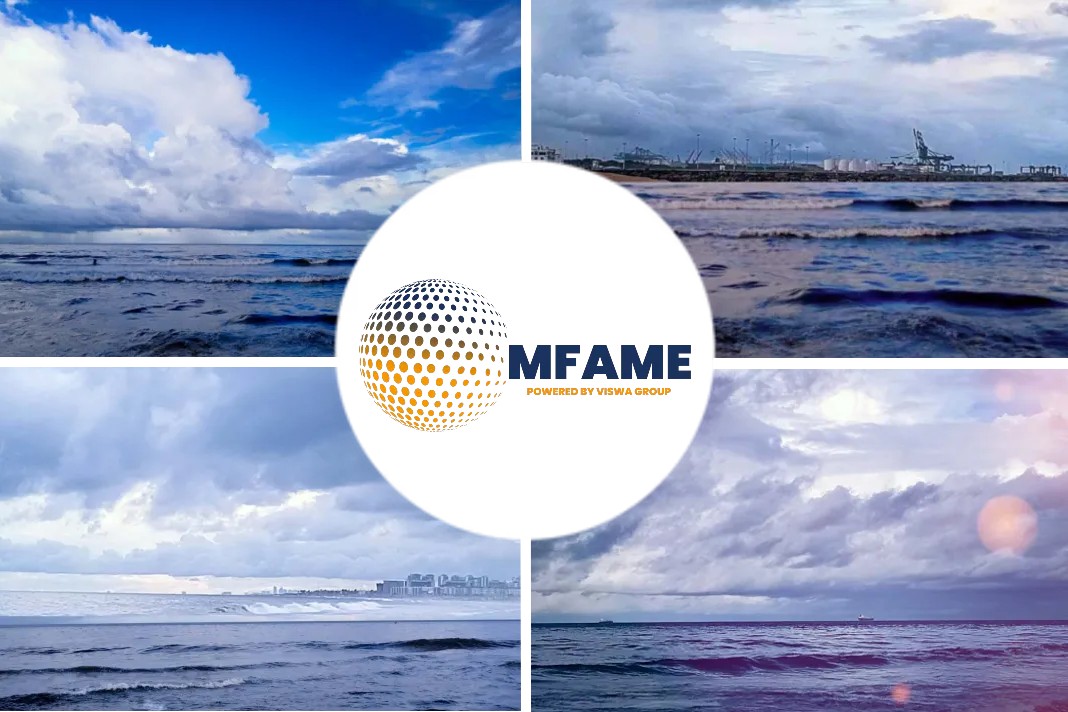- In a bid to lower its carbon footprint, Shell Shipping & Trading has agreed to charter-in 10 LNG-powered Aframax tankers from Sinokor Petroleum.
- Shell has agreed long-term charters for four new LNG dual-fuel oil products tankers, from institutional investors advised by J.P. Morgan Asset Management, with delivery of the vessels expected from 2021.
Shell Tankers (Singapore) Private Ltd has agreed a long-term deal to charter a fleet of 10 LNG dual-fuel Aframax crude oil tankers from Sinokor Petrochemical Co Ltd, reports Rivieramm.
LNG powered tankers
The vessels are due for delivery from 2021 from Samsung Heavy Industries and will be joined in 2021 by four LNG-powered product tankers, which Shell has agreed to charter from institutional investors advised by JP Morgan Asset Management.
Shell has previously announced it has chartered in two LNG-powered Aframax tankers from AET.
Paving the way for LNG bunkering industry
Shell plans to fuel the tankers at existing facilities in Singapore, Rotterdam and other bunkering ports. Shell has an established LNG bunkering operation in Rotterdam and its 6,500-m3 LNG bunker vessel Cardissa fuelled LNG-powered 114,000-dwt Sovcomflot tanker Gagarin Prospect in an operation that marked a number of LNG bunkering industry firsts.
It was not only the first ship-to-ship LNG bunkering procedure to take place in Rotterdam, Cardissa’s home port, but also the world’s first fuelling of a gas-powered Aframax tanker.
Aframax crude oil tankers
In 2018, Shell chartered four LNG dual-fuel Aframax crude oil tankers on a long-term basis. In addition to the LNG dual-fuel ocean-going oil and product tankers, Shell has several dual-fuel inland oil products barges in northwest Europe, running mainly on LNG.
Shell has also chartered three LNG-powered offshore supply vessels to support drilling operations in the US Gulf of Mexico.
Effective check on ship emissions
Shell’s vice president for crude trading and supply, Mark Quartermain said “LNG is already a commercially competitive way to reduce emissions from ships, including those delivering oil to our customers.”
He added “This is an important step in Shell’s wider drive to help decarbonise the shipping sector, both as a leading supplier and user of LNG.”
‘Well to Wake’ emission study
Shell’s vice president of shipping and maritime, Grahaeme Henderson said “LNG is a cleaner-burning and lower-carbon fuel, so shipowners are increasingly using it to help achieve their environmental ambitions in a cost-effective way.”
IMO has set an ambition to reduce annual greenhouse gas emissions from shipping by at least 50% by 2050, compared to 2008.
Compared to some marine fuels, LNG can cut greenhouse gas emissions from ships by up to 21%, according to a “well-to-wake” emissions study by consultants Thinkstep.
LNG is also virtually free of sulphur and particulates, enabling ship operators to significantly reduce their local emissions.
Shipping fuel demand
Demand for gas as a shipping fuel could reach 35M tonnes of LNG a year by 2035, according to Shell’s 2019 LNG Outlook.
Meanwhile, Samsung Heavy Industries announced it has received orders for 10 LNG-fuelled 113,000-dwt Aframax crude oil carriers from an ’Oceanian’ shipowner, valued at KRW 751.3Bn (approximately US$620M). These vessels will be delivered by January 2022 in consecutive order.
The South Korean industrial giant reports it has achieved 54% of its annual target of US$7.8Bn by obtaining orders for 29 vessels equivalent to US$4.2Bn so far and has diversified its orders into different types of ships.
Did you subscribe to our daily newsletter?
It’s Free! Click here to Subscribe!
Source: Rivieramm
















